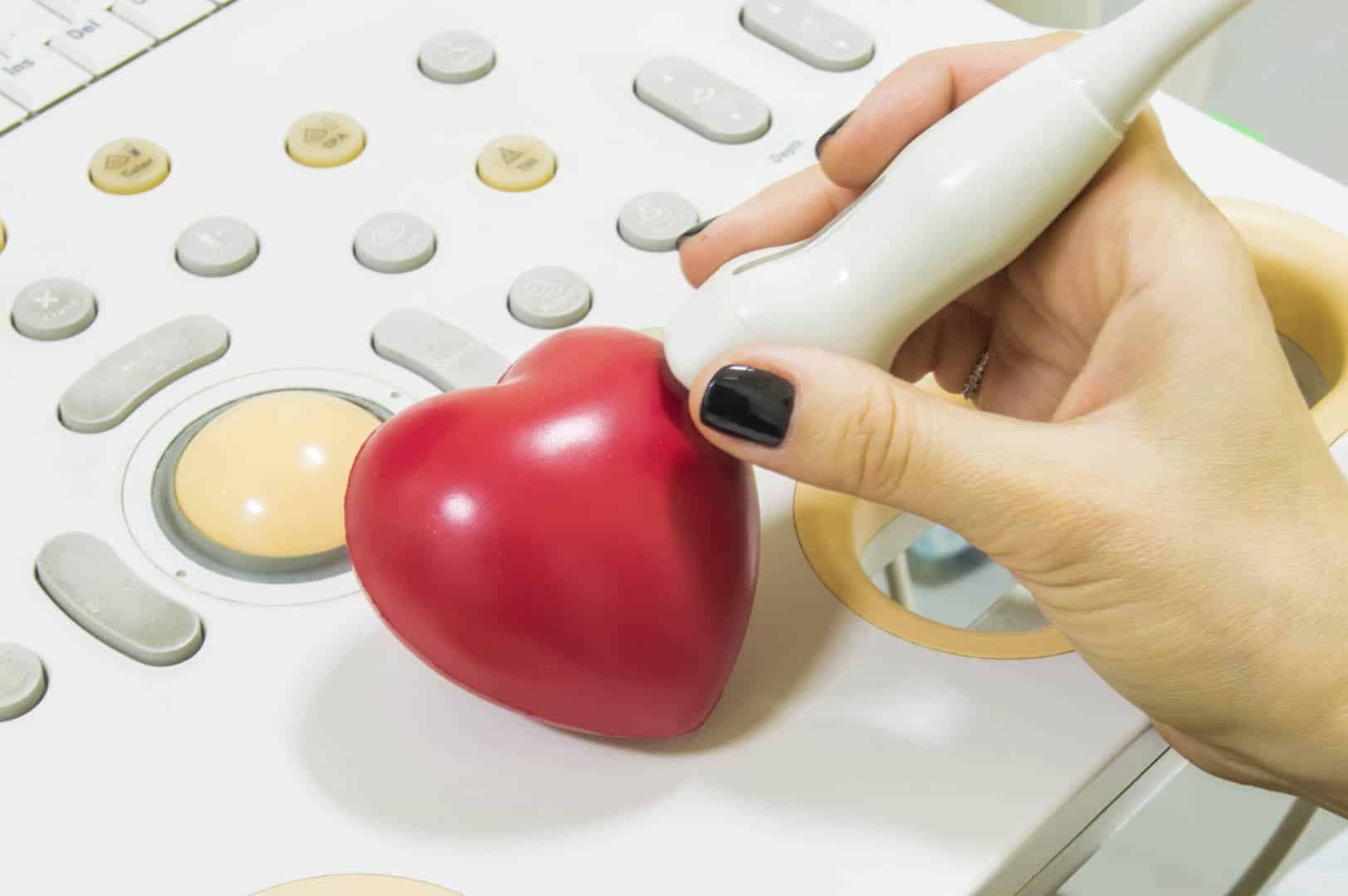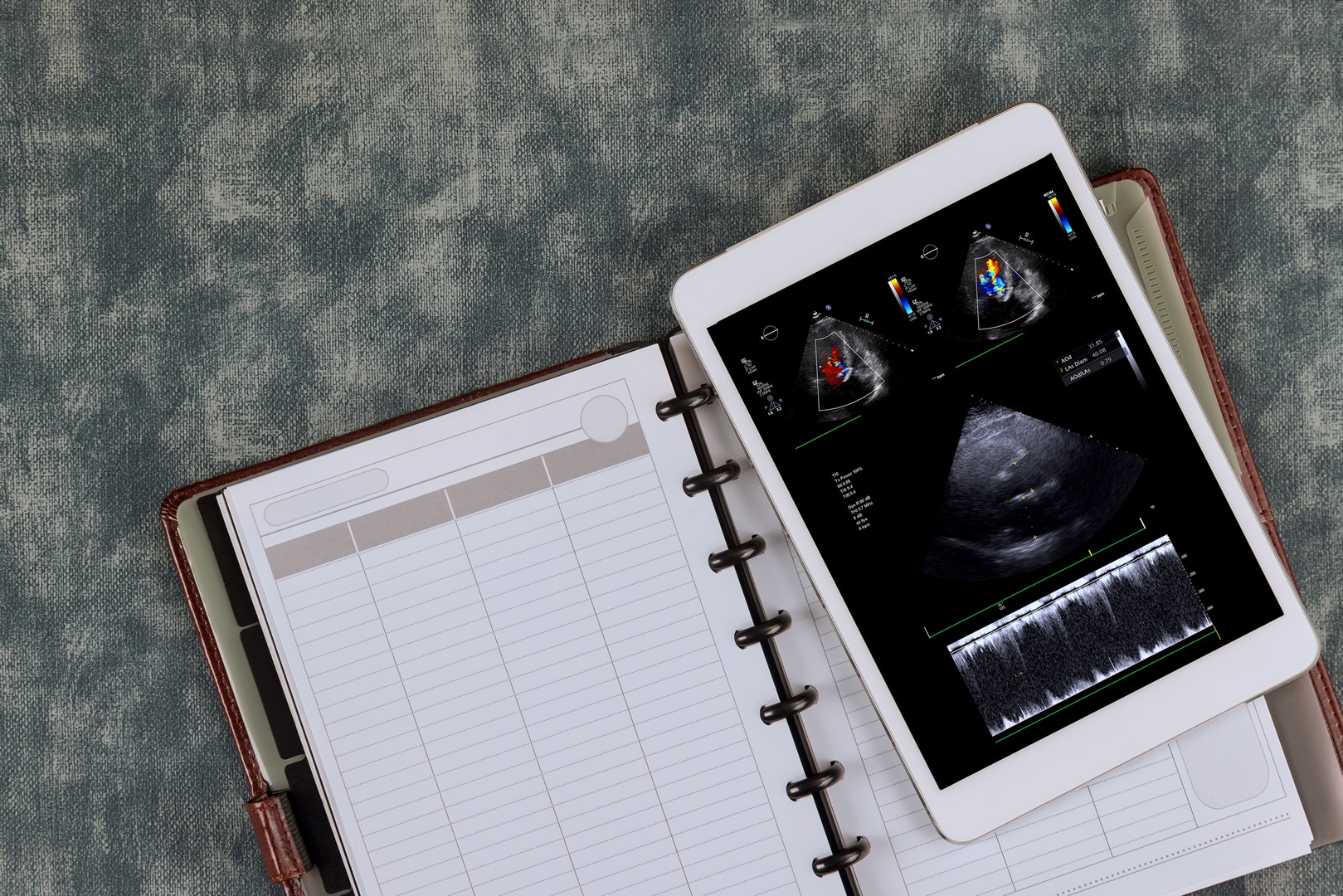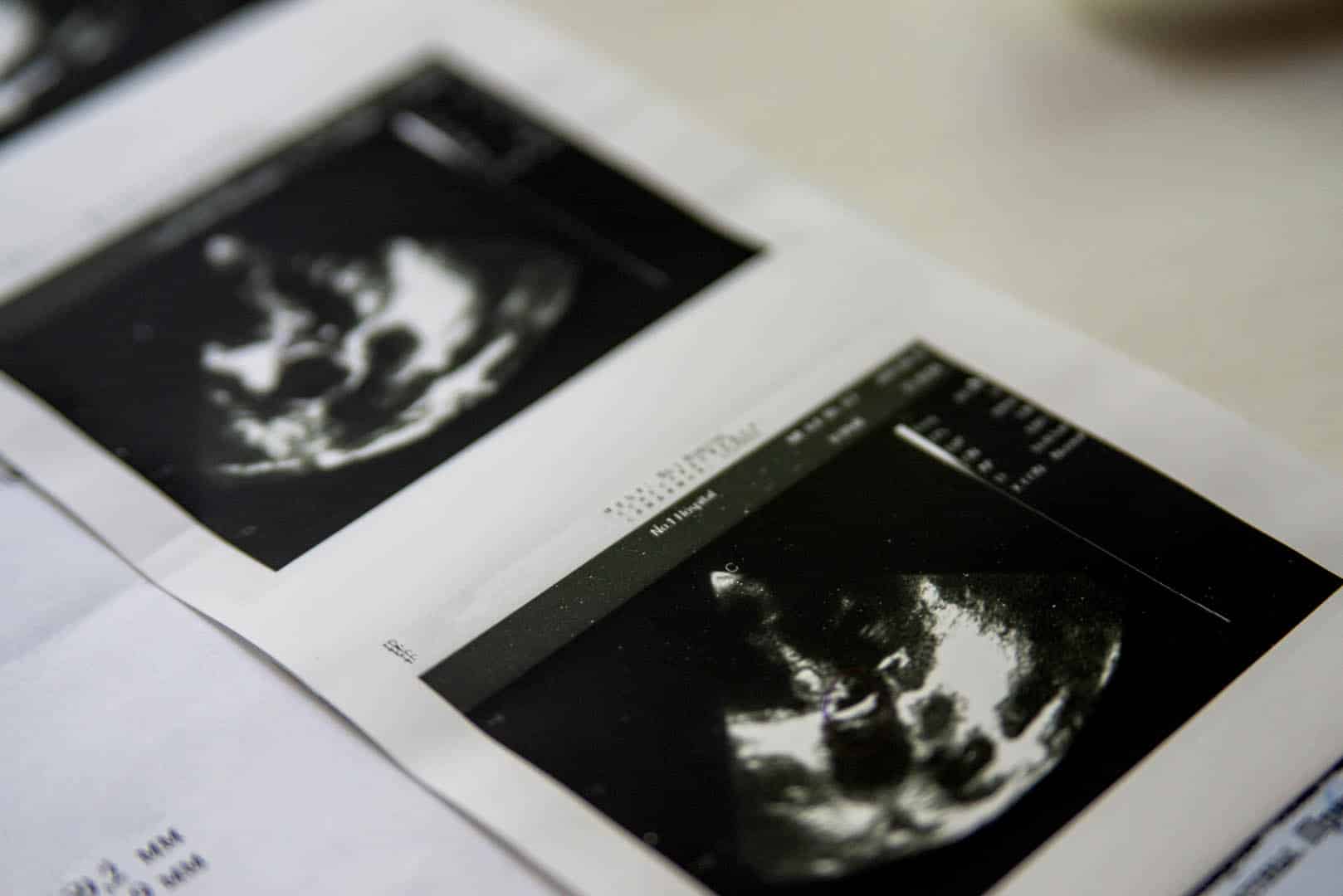Advanced Echocardiography Scan
General Introduction
Echocardiography is a cornerstone of diagnosis in cardiology. This imaging technique uses ultrasound to create real-time images of your heart muscle and valves. The most common type of echo, a transthoracic echocardiogram, is undertaken with an ultrasound probe applied to the patient’s chest wall, with ultrasound gel used to facilitate contact between the probe and the patient’s skin, facilitating optimal imaging. As well as providing an overview of your heart’s health in terms of its ability to pump blood, a transthoracic echocardiogram will also allow an assessment of the chamber sizes within your heart. With the addition of Doppler imaging, blood flow can be visualised and the health of your heart valves evaluated.
Advanced Echocardiography ULTRASOUND
Most commonly, your transthoracic echocardiogram will be undertaken by a specialised physiologist, though Dr Jordan may wish to perform the test himself under some circumstances. For the test, a 3-lead ECG will be attached to your chest and an ultrasound probe placed on the skin of your chest wall, with gel to enable good contact between the probe and your skin. This gel is water-based and easily removed afterwards. The procedure takes 30-45 minutes in total, after which you can continue with your usual activities. If contrast is needed, this will be discussed with you beforehand and administered via a small cannula in your arm.
Stress echo is conducted using exercise on a treadmill or medication stress, allowing Dr Jordan to visualise your heart at rest and when it is under peak demand. As for a transthoracic echocardiogram, the images are acquired using a probe placed on the surface of your skin and whilst an ECG is attached to your chest.
Transoesophageal echo is undertaken using sedation and a local anaesthetic spray for the back of your throat. Although you will not be completely anaesthetised, the sedation allows you to be semi-conscious so that you can swallow the probe and allow Dr Jordan to acquire extremely detailed images. An ECG is also attached during this procedure, which takes approximately 45 minutes in total.
Who Needs a HEART ULTRASOUND scan?
Echo is often used within cardiology diagnostic services as it gives an excellent overview of your heart’s structure and function. This can not only be related to heart muscle and valve disorders, but also provides valuable information for people with heart rhythm disorders (arrhythmia) or blood supply problems (angina or heart attacks).
Stress echo is used primarily to diagnose blockages within the heart’s blood supply, though is also used to further define heart valve or heart muscle problems, particularly if surgery is being considered. By applying an ECG during the procedure, stress echocardiography has the added benefit of monitoring for stress-induced heart rhythm problems.
Transoesophageal echo is considered the gold standard for investigating heart valve disease and is also frequently used in the testing of other structural heart problems.
Here are some heart conditions that can be assessed using an echocardiogram:
- Coronary artery disease
- Heart valve disorders
- Cardiomyopathy
- Congenital heart defects
- Heart Murmurs
- Chest Tightness
Preparing for your Test at our Heart Clinic
No specific preparation is required for a transthoracic echocardiogram – you should take your medications as normal on the day of your echocardiogram and eat and drink as normal. It is advisable not to use moisturiser on the skin of your chest on the day of the ultrasound scan, to allow better contact with the ECG stickers.
For stress echocardiogram examination, it is recommended to wear comfortable clothes and trainers if you will be using a treadmill as part of your test. If Dr Jordan has indicated that medication stress will be used, it is advisable not to drive immediately afterwards. However, if you have no choice other than to do so, you can rest for 30 minutes in our comfortable waiting area after finishing the test and before driving home.
If you are scheduled to undergo transoesophageal echocardiography, you will need to have nothing to eat or drink for 6 hours prior to your procedure. As the test involves sedation, it is important that you do not drive or operate heavy machinery for the rest of the day after your test.
Imaging Results and Treatment
For private services, test results are sent directly to Dr Jordan by email (if he is not performing the test himself). He will then be in a position to take your care forward for you, as discussed at your initial consultation.
Why Choose a Private Echocardiogram Scan?
As a private patient of Dr Jordan, there is no waiting list for a transthoracic echocardiogram and you will know that he will receive the results almost immediately afterwards. This means that you will know your scans result and treatment plan without delay, giving you a timely piece of mind.
For advanced echocardiography services, as a private patient, your test will be undertaken by Dr Jordan himself. In this manner, you will know that you will be in expert hands and that he will be able to discuss your results with you immediately after your advanced cardiac imaging.
Frequently Asked Questions
How long does an echocardiogram take?
A standard transthoracic echocardiogram is usually completed within 30-45 minutes of visiting our clinic.
How long does it take to get echocardiogram results?
Echocardiogram results are available shortly afterwards (within an hour) and sent to Dr Jordan once finalised. If undertaken directly by Dr Jordan, your results will be available immediately on completion of your scan.
How is an echocardiogram done?
An echocardiogram is completed using ultrasound (with specialised ultrasound jelly), using a probe placed on the front of your chest.
How does an echocardiogram work?
Echocardiography uses ultrasound to take detailed pictures of your heart.
Is the echo test painful?
Echocardiography should not be painful, though you will be aware of the probe being held relatively firmly against your chest.
Can I eat before an echocardiogram?
There is no need to refrain from eating or drinking normally before an echocardiogram.
Do I have to take my clothes off for an echocardiogram?
A bare chest will be required to perform an echocardiogram. However, a sheet or gown will be available to ensure that you feel comfortable.


